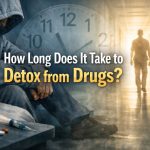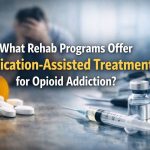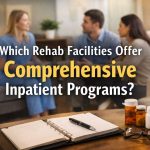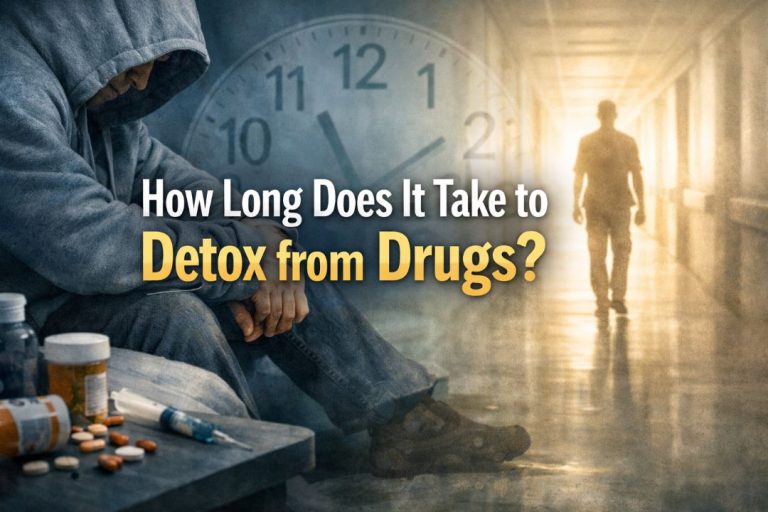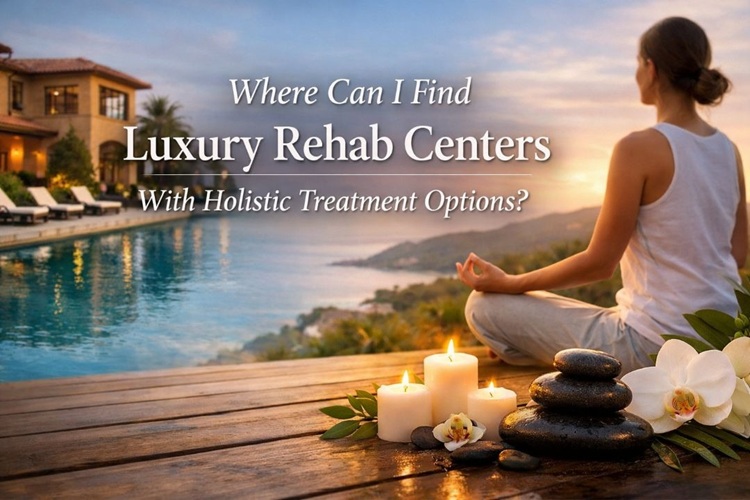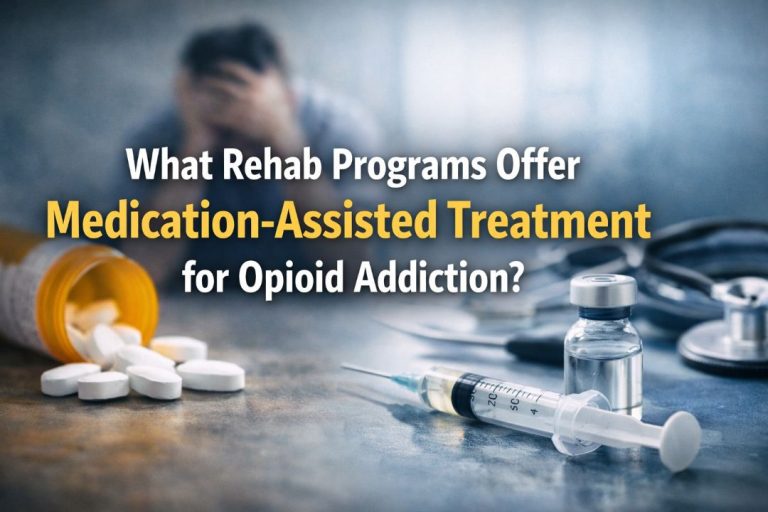Dual diagnosis is both a mental health disorder and a substance disorder in the same person. It’s more common than many people realize because of the desire to self-medicate in many cases. In fact, up to 50% of individuals struggling with addiction also face underlying issues like depression, anxiety, PTSD, or bipolar disorder.
The trouble is, these conditions often go undiagnosed or untreated, especially in traditional rehab settings that focus solely on addiction. Without addressing both sides of the problem, it’s easy to fall into a cycle of temporary recovery followed by relapse.
That’s where dual diagnosis treatment comes in. These programs are designed to treat the whole person, mind, body, and spirit.
In this article, we’ll break down the seven key benefits of dual diagnosis treatment, with a special focus on why choosing a Florida-based rehab may offer even more advantages.
Benefit #1: Treats the Whole Person, Not Just the Symptoms of Co-Occurring Disorders
One benefit of dual diagnosis treatment is its holistic, whole-person approach.
Instead of focusing only on the addiction, like many standard rehab programs do, dual diagnosis rehab tackles both the mental condition and the substance use disorder at the same time.
Someone could use drugs or alcohol to cope with depression, anxiety, and panic attacks, or trauma without even realizing it. If only the addiction is addressed, but the underlying pain is ignored, the cycle is likely to repeat.
In dual diagnosis rehab, clients receive care from a team that understands this connection. Therapists, psychiatrists, and addiction specialists work together to create a treatment plan that targets both sides of the problem. This might include a combination of medication along with therapy, and trauma-informed care, all designed to help clients understand the root causes of their struggles.
Dual diagnosis rehab treats the whole person, not just the surface-level symptom. This helps with laying a stronger foundation for long-term healing and increased motivation to remain sober.
Benefit #2: Personalized and Integrated Treatment Plans for Mental Health Disorders and Addiction.
Instead of handing every person the same recovery playbook, these programs take the time to understand your full story, your mental health background, your history with substances, and your individual goals for healing. From there, everything is tailored.
You might be matched with therapies like CBT or DBT to help with coping skills, get support for trauma, or receive medication from clinical staff to help stabilize your mental health. Group therapy, mindfulness, nutrition guidance, and yoga might be part of the mix, too.
What makes this kind of care different is how everything is connected. Your therapist, psychiatrist, case manager, and medical team aren’t working in silos, they’re working together. They communicate, adjust your plan as you grow, and make sure no piece of your recovery is overlooked.
Benefit #3: Access to Specialized Therapies and Professionals
One of the standout advantages of dual diagnosis rehab is access to professionals who are specifically trained to treat addiction and mental health problems. That level of expertise can make a big difference in a client’s ability to truly heal.
In a dual diagnosis setting, clients are evaluated by psychiatrists who can diagnose and manage mental health conditions while addiction specialists provide evidence-based therapy.
This kind of care is essential for people with co-occurring disorders because their needs are often more complex.
A therapist who understands how depression can fuel relapse, or how anxiety can be triggered during early sobriety, will be better equipped to help someone navigate recovery without falling back into old patterns.
Florida, in particular, is home to many top-tier rehab centers that attract experienced clinicians from around the country to provide comprehensive care for psychiatric disorders like post-traumatic stress disorder, along with substance abuse disorders.
Benefit #4: Reduced Risk of Relapse Following Addiction Treatment
One of the most important benefits of dual diagnosis treatment is a lower risk of relapse.
Many people who struggle with addiction also deal with depression, anxiety, PTSD, or other mental health conditions. When those underlying issues go untreated, they often become triggers for using substances again.
Dual diagnosis rehab doesn’t just help someone get sober, it helps them stay sober. By addressing both the mental disorder and the addiction using evidence-based practices, treatment providers can teach healthier, more effective coping strategies.
Instead of turning to alcohol or drugs during moments of emotional distress, clients learn how to manage stress, regulate emotions, and build a support system that lasts.
This dual-focus approach makes long-term recovery more realistic. When the root causes of substance use are treated alongside the symptoms, people are better equipped to handle the challenges that come after rehab.
Benefit #5: Supportive Peer Environment with Shared Struggles
In a dual diagnosis rehab, you’re not the only one dealing with both addiction and mental health challenges, and that matters. Being in a treatment setting where others are facing similar issues can create a powerful sense of understanding and connection.
Many people with co-occurring disorders feel isolated or misunderstood, even in traditional rehab settings. In a dual diagnosis program, there’s less judgment and more empathy. Group therapy sessions are often more impactful because the people around you get it.
They’ve been through the same ups and downs, and that shared experience helps build trust and support. This kind of peer environment can be incredibly healing. It fosters deeper conversations, reduces feelings of shame, and encourages accountability.
A sense of community is a key part of recovery, and dual diagnosis treatment creates space for that community to form meaningfully, one that helps people feel seen, supported, and not so alone.
Benefit #6: Holistic Approach to Dual Diagnosis Treatment
A unique advantage of many Florida-based dual diagnosis rehabs is their commitment to holistic care. This approach focuses not just on sobriety, but on full-body and emotional wellness.
Beyond therapy and medication, these centers often incorporate practices like yoga, mindfulness meditation, nutritional counseling, fitness programs, and even acupuncture.
These wellness therapies support nervous system regulation, improve sleep, reduce anxiety, and help clients reconnect with their bodies, key elements of long-term recovery, especially for those managing both mental health and addiction.
Florida’s natural beauty and climate also help with healing. With sunshine, fresh air, and proximity to nature, many clients find it easier to relax and focus on their recovery journey. The setting itself becomes part of the treatment, offering calm and comfort when it’s needed most.
This mind-body approach reflects one of the broader benefits of dual diagnosis treatment: recovery that goes deeper than just detox. Holistic care helps restore balance from the inside out.
Benefit #7: Better Long-Term Outcomes with Aftercare Planning
Recovery doesn’t end when residential treatment does, and dual diagnosis programs understand that. One of the most vital benefits of a dual diagnosis rehab is the emphasis on comprehensive aftercare planning to support long-term success.
Because mental health conditions often require ongoing attention, clients leave with more than just a discharge plan. They’re set up with outpatient therapy, psychiatric follow-up, medication management, and relapse prevention strategies. Many programs also offer access to sober living homes, alumni support groups, and telehealth counseling.
This continuity of care is essential. Instead of falling through the cracks after treatment, clients stay connected to the support they need to thrive.
When mental health and addiction are treated together, and that support continues post-treatment, clients are much more likely to maintain sobriety and emotional stability in the long run.
Why a Florida Dual Diagnosis Treatment Center?
There’s a reason so many people head to Florida for addiction and mental health care, it’s not just about the palm trees and sunshine (though those definitely help). The natural beauty, warm weather, and slower pace of life can create a peaceful setting that makes it easier to focus on healing.
It’s more than just the atmosphere. Florida is home to some of the nation’s most experienced integrated care providers when it comes to treating dual diagnoses. Many of the rehabs here offer top-tier care from professionals who understand how mental health and addiction often go hand in hand.
For those coming from out of state, Florida is easy to get to and offers plenty of options, whether you’re using private insurance or need a flexible plan that fits your situation. If you’re looking for expert care in a supportive, restorative environment, Florida offers a unique blend of both.
References:
- National Institute of Mental Health (NIMH): Substance Use and Co-Occurring Mental Disorders
- National Institute on Drug Abuse (NIDA): Common Comorbidities with Substance Use Disorders







